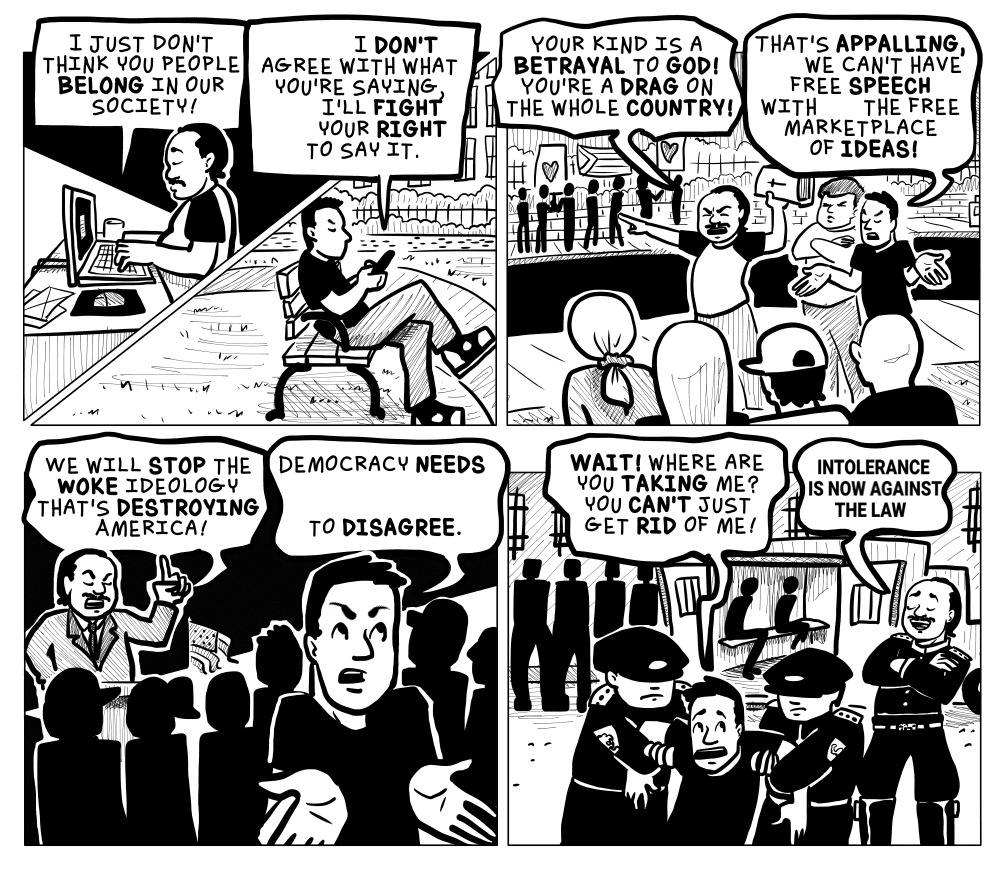this post was submitted on 21 Sep 2023
22 points (65.7% liked)
Comic Strips
12965 readers
1932 users here now
Comic Strips is a community for those who love comic stories.
The rules are simple:
- The post can be a single image, an image gallery, or a link to a specific comic hosted on another site (the author's website, for instance).
- The comic must be a complete story.
- If it is an external link, it must be to a specific story, not to the root of the site.
- You may post comics from others or your own.
- If you are posting a comic of your own, a maximum of one per week is allowed (I know, your comics are great, but this rule helps avoid spam).
- The comic can be in any language, but if it's not in English, OP must include an English translation in the post's 'body' field (note: you don't need to select a specific language when posting a comic).
- Politeness.
- Adult content is not allowed. This community aims to be fun for people of all ages.
Web of links
- [email protected]: "I use Arch btw"
- [email protected]: memes (you don't say!)
founded 2 years ago
MODERATORS
you are viewing a single comment's thread
view the rest of the comments
view the rest of the comments

That's smart - I never thought about handling it through Hobbes.
Another way that I found to handle this is through some pseudo-utilitarianism. Like this:
Tolerance is scalar, not binary; you can have more or less tolerance in a society, but it's never zero or complete. And the goal of a tolerant society is to maximise the amount of tolerance in itself, in a sustainable way for the future.
When you remove a discourse from public spaces, you're decreasing the overall tolerance of the society. However, the spread of intolerant discourses also decreases it. So a tolerant society should weight those two things, and remove intolerant discourses from public spaces only as much as necessary.
The net result is similar, in spirit, to Popper's paradox of tolerance: the society should give itself the right to curb down intolerance, but it shouldn't use this right willy-nilly.
Sure. Although 'tolerance' here needs stricter defition. I would argue that the proponents of censorship are few. The victim is discourse itself, and by extent, regular imperfect people.
This is by no means a perfect definition, but I think that "tolerance is the acceptance of someone's intrinsic attributes, appearance, behaviour and utterances, without acting or speaking against the person because of those things" should be a good start.
I'm pleasantly surprised that someone caught this up - originally the argument was about freedom of speech, that's why it focuses so much on discourses.